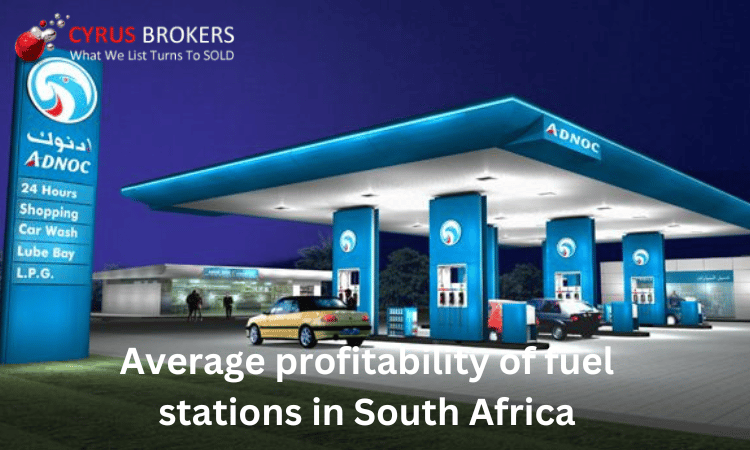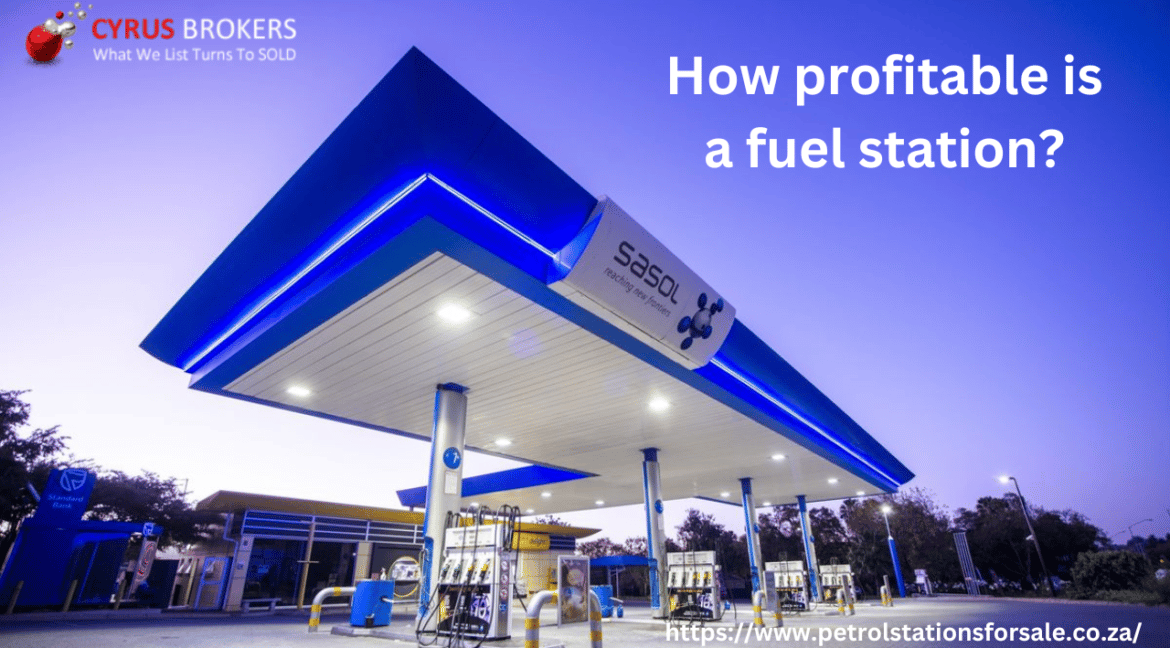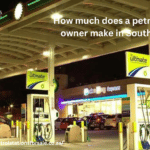Profitability refers to the ability of a business to generate a profit, or positive net income, over a certain period of time. In the context of a fuel station in South Africa, profitability would refer to the station’s ability to generate a profit from the sale of fuel and other products, after all expenses have been taken into account.
The fuel station industry in South Africa is an important sector that provides essential services to the country’s population. Fuel stations are widely distributed throughout the country, with many located in urban and rural areas. The industry is highly competitive, with many large multinational companies and local independent operators competing for market share. The fuel station industry in South Africa is also subject to government policies and regulations, which can impact the profitability of fuel stations.
Factors affecting profitability of a fuel station in South Africa
A. Location: The location of a fuel station can greatly impact its profitability. Fuel stations located in densely populated areas with high traffic flow are likely to see higher sales and, therefore, higher profits compared to those in less densely populated areas.
B. Size of the station: The size of the fuel station can also impact profitability. Larger stations with more fuel pumps and convenience store space are likely to generate higher sales, but they also have higher operating costs.
C. Competition in the area: The level of competition in the area can also impact the profitability of a fuel station. If there are many fuel stations located in close proximity, it can drive down prices and make it difficult for individual stations to maintain a high level of profitability.
D. Cost of fuel and other products: The cost of fuel and other products sold at the fuel station is a major factor affecting profitability. Fuel stations must constantly monitor changes in fuel prices and adjust their prices accordingly to remain competitive. The cost of other products, such as convenience store items, also impacts profitability.
E. Operating costs: Operating costs, such as employee salaries, utilities, rent, and maintenance, can also impact profitability. Fuel stations must carefully manage these costs to maximize their profits.
F. Government policies on fuel prices, taxes, and regulations: Government policies on fuel prices, taxes, and regulations can greatly impact the profitability of fuel stations in South Africa. Changes in fuel prices, taxes, and regulations can significantly affect the cost structure of fuel stations, making it important for them to stay informed about any changes in government policy.

Average profitability of fuel stations in South Africa
A. Data analysis of average profits: To determine the average profitability of fuel stations in South Africa, data can be collected and analyzed from a variety of sources, such as financial statements and industry reports. This data can be used to calculate average profits for fuel stations in the country and provide insight into the overall profitability of the industry.
B. Comparison with other businesses in the retail industry in South Africa: The average profitability of fuel stations in South Africa can also be compared with other businesses in the retail industry to gain a better understanding of the industry’s performance relative to others in the market. This comparison can help to identify any trends or factors that may be impacting profitability in the fuel station industry.
Impact of government policies on profitability of fuel stations in South Africa
A. Changes in fuel prices: Changes in fuel prices can significantly impact the profitability of fuel stations in South Africa. Increases in fuel prices can drive up the cost of operating a fuel station and reduce profits, while decreases in fuel prices can have the opposite effect.
B. Taxes and regulations: Taxes and regulations related to fuel stations can also impact their profitability. The implementation of new taxes or changes in existing regulations can increase the cost of operating a fuel station, reducing profitability.
C. Subsidies and incentives: Government subsidies and incentives can also impact the profitability of fuel stations in South Africa. Subsidies and incentives can help to offset some of the costs associated with operating a fuel station, increasing profitability. However, they can also create an uneven playing field, as some fuel stations may receive more favorable treatment than others.
The average profitability of fuel stations in South Africa is influenced by various factors, including location, size of the station, competition in the area, cost of fuel and other products, operating costs, and government policies on fuel prices, taxes, and regulations.
The future outlook for profitability of fuel stations in South Africa will depend on a variety of factors, including changes in fuel prices, taxes and regulations, subsidies and incentives, and competition in the industry.
Potential fuel station owners in South Africa should carefully consider the factors affecting profitability in the industry and seek advice from experts in the field before making a decision to invest in a fuel station. It may be useful to conduct market research, financial analysis, and assessments of government policies to help inform this decision.










